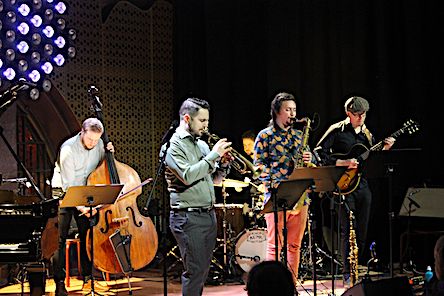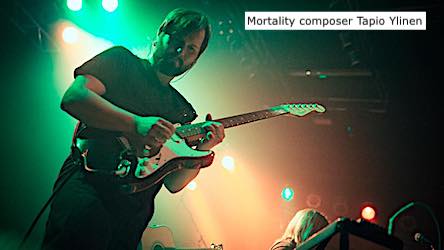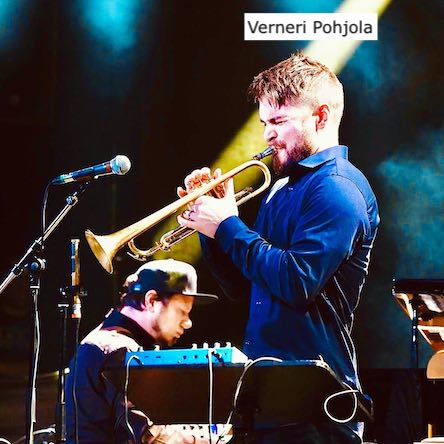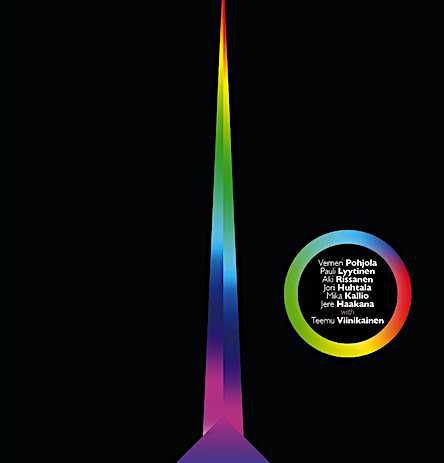 
|
||||
|
|
MORTALITY |
|||
|
mwe3.com presents a new interview with
Tapio Ylinen: Even though Finland has coped with the pandemic perhaps slightly better than many other countries in Europe, it has still been a bizarre and difficult period. Gigs, festivals and projects have to be constantly cancelled and rescheduled and the live music scene is certainly in turmoil. It remains to be seen what the overall effects are for the Finnish music industry. There are difficult times still ahead, I’m afraid. For me personally, despite being in the middle of the music industry turmoil with my record label, Eclipse Music, I have had some time to write new material for the second Mortality album. So there is that particular silver lining to this situation for me. Also, streaming gigs are no longer a fringe phenomenon. Live streaming took a big leap forward in 2020, and there are great possibilities in that technology also for non-mainstream musicians to perform and promote their music. mwe3: How are things with your record company Eclipse Music and did the pandemic alter your release schedule and your recording? Were any of the Eclipse artists or your friends affected or struck down by the pandemic? Tapio Ylinen: Eclipse Music is doing okay considering the situation but, as I said, there seems to be a constant flow of set-backs and re-scheduling going on. People are, fortunately, still buying records online. That’s keeping things rolling. Most of our 2020 releases were affected by the pandemic in one way or another. Luckily, as far as I know, no-one has gotten seriously ill thus far. Our live club was on hiatus from March to August. We organized some shows during the autumn for limited audiences, but now we’re on hiatus again. I’m putting some live studio sessions together so that we can stream those during the spring time. mwe3: It’s kind of sad to think of the connection between the Eclipse release of Mortality and the death of your wife. Tell us about that connection and how great music can come out of a singular disaster in life. Was the music you wrote and recorded during your wife’s illness a form of therapy to help you cope with your loss and what's been the reaction to Mortality in Finland and also in other countries? Did you mostly reach out to the jazz media or are fusion fans and prog-rock fans also on board?
I wanted to do some kind of thematic piece around that topic: mortality, the limits of our existence. At first I thought of making an album like Tubular Bells. Instrumental music based on those pieces of music I wrote back in 2015 in which I’d play all the instruments myself. But it turned out to be too heavy a task emotionally. Then I had the idea of inviting some of my friends to help out and that soon turned into an idea of putting a band together for the sole purpose of making this music come to life. And so I asked Pauli Lyytinen and Verneri Pohjola and Aki Rissanen and all of these wonderful musicians who are playing on the album would they be interested in this project. And to their everlasting credit they all said yes right away which, in turn, was a huge confidence boost for me as a composer. The guys in the band each took a song or two and wrote the arrangements of my songs for a jazz sextet and that’s how the music took its final form that you hear on the album. The album has been a great success. It has sold well and the reviews in Finland, Germany and elsewhere in Europe have been fantastic. It has also been noted in a few prog-related web magazines as well, so it’s not just jazz fans who have supported the album. Mortality is now nominated as Jazz Album of the Year at the Finnish equivalent of the Grammy Awards, so it has been, by far, the most successful album of my career as a songwriter and a wonderful catharsis. mwe3: Because the Mortality recording sessions took place before the pandemic shutdown, was the album mostly recorded with all the musicians in the studio? Tell us something about the way the album was recorded. Were you able to do any concerts of the music or was it lockdown by that time? How did you decide on the musicians that recorded your music on the Mortality album?
We premiered the album at my home town, Tampere, at the new G Livelab venue in November 2019, a few months before the Covid chaos. The guys played the entire album straight through and it went spectacularly well. We also had a chance to play a second show at the Tampere Jazz Happening during an easier period with Covid. That show was broadcasted on the radio by the National Broadcaster YLE. mwe3: I hope you don’t mind me saying that the music on Mortality sounds very influenced by the music of Finnish prog-rock icon Pekka Pohjola and so how did Pekka’s son Verneri become involved with the album? Has your label released solo albums by Verneri? Did you write the music on Mortality with these musicians in mind and what was the reason that you chose to only write the music on Mortality and not perform on it? Was the subject too painful for you to actually play on the album? Yet, you did play a bit on the lead off, albeit short track, part 1 of the 3 part “In Memoriam” suite. Tapio Ylinen: Yes, Pekka Pohjola’s music has been an important influence on me and I acknowledge that on this album. It was clear from the beginning that this music was an attempt at continuing the legacy of that style of progressive jazz fusion. So, in a way, I make a small tribute to Pekka’s music here as well, and so it was fantastic to have Verneri playing and arranging on this album. At the time I was writing the original demos I had no idea what to do with them. They were just random ideas for possible compositions, to be developed later. It was only after I scratched the attempt at making the album by myself that I started to think about what the lineup should be. But that became clear pretty quickly. At the very end of the recording sessions I did, however, realize that the album, as a conceptual piece, needed an introduction and that perhaps it might be a good idea to have the composer’s fingerprint in the actual recording. So I borrowed Jere’s guitar and I played a free form version of the main theme, just by myself, just like I had originally composed it. mwe3: It’s interesting that Verneri and Pauli Lyytinen did some great arranging on the Mortality album and in the album liner notes you state that “In Memoriam Pt.3” was influenced by Pekka Pohjola and it was great to see his son doing the arranging of that track. Can you describe the different approaches that Verneri and Pauli took in arranging the second and third parts of the “In Memoriam” suite?
Verneri did a fantastic job at taking what was the essential material in my demos and crafting beautiful horn sections on top and thus giving extra color and depth to his arrangements. A real showcase of craftsmanship. All in all, I was really moved how everyone respected the source material and maintained all of the emotional core of the original compositions while, at the same time, adding their personal touch and sensitivities to the music. And it’s all richer for it. mwe3: Also tell us something about the other guitarists featured on the Mortality album. Has Jere and Teemu made any album of their own? Did you give some parameters about how you wanted the guitars to sound on the album? Tapio Ylinen: Teemu Viinikainen is one of the most sought after jazz guitarists in Finland and has made a bunch of album both as the front man of his own groups and as a session player. He played guitar, for example, on Verneri Pohjola’s recent album Pekka in which they play Verneri’s arrangements of his father’s songs. A great album for all Pekka Pohjola fans! I had the fortune of releasing Teemu’s trio album Return of Robert Dickson and it was nominated as Jazz Album of The Year in 2018. Jere has also released his own music with the group Jere Haakana Varjosto. Wonderful prog-rock / fusion jazz stuff! He’s a very fluid and melodic player who can play anything from heavy metal to jazz, prog and world music. Both of them created their own sounds really. Again, I was impressed by how the music I had written guided their approach to the way they played. They played what was best for the songs and that professionalism was one reason this album worked out so well.
Tapio Ylinen: “Death’s Little Sister” was one of those special cases where the melody just somehow appeared to me in pretty much complete form, and Jori Huhtala’s arrangement was just spot on. The melody has a vocal quality to it, so I was originally thinking it might be vocal piece, but writing lyrics to something this grim didn’t feel right. It had a real danger of becoming cheesy if I had tried to put lyrics about death into it. Everyman is a strange album in Pekka’s discography, really different in terms of production, a heavily 1980’s sounding album. But his trademarks as a composer are still there. “No Way Out” is a great track from that album and even better on the Heavy Jazz live album. I’ve never seen the film and I don’t think it has ever been in wide circulation since its release. Don’t know why. But, philosophically speaking, the never ending appeal of death as a subject is, I think, due to the fact that we don’t really have access to it. Even when we speak of near death experiences, they aren’t death experiences, the emphasis is in the word ‘near’. Death isn’t a singular event, it’s a process. And once you go beyond a certain point there’s no way to come back and convey that experience. That’s why calling this album Death or something like that wouldn’t have been right. Even though I watched close by what it’s like when someone takes that step beyond I still don’t have access to that. But I can express something about ‘mortality’. mwe3: What brought you to the conclusion that Teemu Vinikainen would be the perfect musician to arrange the title track to Mortality and can you tell us something about the Christopher Hitchens book that inspired you during the writing of the title track? You mentioned it is a guitar piece yet there’s so little guitar on that track. I wonder if any musicians have done albums about their own passing or to chronicle the steps towards death? I think George Harrison did something like that on his Brainwashed album yet it was completed by other musicians after George passed away. What stood out for you most about that track and also about that book?
I wrote and recorded the demo for that track on the guitar and for a simple practical reason, I thought it would be a good track to give to a fellow guitar player to arrange. Teemu’s arrangement, however, focused more on the horns and downplayed the guitar parts, but again, that’s where the music led him and that was the right thing to do for the song. It’s a great live song where everyone gets a spotlight to do an extended solo. mwe3: Tell us about “Towards Dawn” part 1 and 2 and the different approaches of Aki Rissanen and Verneri Pohjola took on the track. Is “Towards Dawn” a kind of “relief” or as you say seeking the light of dawn after a family death or another kind of tragedy? It’s to your credit that you could write a kind of uplifting, spiritual track to help you elevate your personal perspective in a time of crises. Also in the liner notes you say that “Towards Dawn Parts 2 & 3” are track 7 yet there’s a track 8, is that the Part 2? Tapio Ylinen: I wanted the album to be a journey from darkness to light and so the “Towards Dawn” suite is a selection of uplifting melodies after a series of darker pieces. I wrote the first theme on a lap steel guitar and it had that echo-y ethereal feel to it, almost like a hymn. Aki gave that theme to the horn section in his arrangement and came up with an arpeggio part for himself. A very respectful way to adding rhythmical elements to what is essentially a ballad. Pauli’s soprano sax solo lifts the whole thing up even higher. The last track was originally just one piece with two main themes stitched together, but Verneri slowed the first part down and made the latter part faster than my demo. The difference in tempo emphasized that these were, in fact, two separate pieces of a suite. And since we start the album with a 3 part suite it made sense to close it in the same way. So we separated parts 2 and 3 into their own tracks. There is certainly a sense of relief there in those last tracks. It was designed to be that way, but it also has relief built into it for me personally. Music has always provided relief for me during dark times and especially during the dark times in question here. “Towards Dawn” was written after some time had passed and at a time when things were looking brighter. It is a tribute to my girlfriend at the time, we’ve since married, whose support was essential to bringing me back as a creative force. My previous album Left Unsaid was, after all, old material that I felt I needed to complete. But it was quite a task to find the confidence to write new material. I didn’t have the energy to write anything when my wife was ill, so I had to re-invent that part of me after such a long break from composing.
Tapio Ylinen: The cover was designed by my cousin Aarni Ylinen who has done a lot of album designs for Eclipse Music. He came up with the idea of the sands of time flowing down, but then he made it much more abstract and interesting using the color spectrum. It’s a very fine piece of graphic design. Not only is there the contrast of light versus dark, there’s black versus color, there’s a straight connection with the concept of a journey from the night towards dawn or, indeed, death creeping in and surrounding us… You can find all kinds of meanings in there. mwe3: For the gear fans, are there any new developments in the guitar world for you? How about in the studio world? With the pandemic, I guess there are so many new developments in the recording world too and what about Zoom? Seems like with live performing on hold for now, Zoom concerts of the future might not seem so strange, as the new normal, after all. One thing that has been proven in this past year, is that the internet has truly saved our asses, both from an informational / educational sense but also in an economic perspective. Tapio Ylinen: For sure! We’re planning to do some streaming concert for the Eclipse Jazz Club series and that’s certainly something that we wouldn’t have been able to do in any decent quality 10 years ago. Now you can broadcast from your phone and the quality can be HD or 4K even. As for guitar stuff… This album was played with quite traditional gear, although I think Jere used a virtual cabinet of some sort that was plugged straight into the desk and we didn’t need to mic it up at all. And it sounds like a vintage amp. That technology has advanced quite a bit in recent years. I’m still happy with playing my good old Fender Strats. Nothing new there. I may want to buy a Pensa someday… if I can afford it. mwe3: So with Mortality available on CD and digital, what plans are you looking at for 2021? “1” years, the start of a new decade, are always so transitional and challenging in a way, and it always feels like a new start, sometimes for the better and sometimes not? What good things are you hoping for in 2021 and have you been writing new music during the pandemic and also what directions will you be taking in writing and recording your next music and/or solo album this year?
I have been writing the second Mortality album. I’m maybe 2/3 of the way with that. I’m hoping to have enough new material by summer time so that we could get together, arrange and record towards the end of the year. I have also been slowly recording new prog-rock material with my new band together with bassist-songwriter, Mikko Löytty. We’re trying to get that band rolling in 2021. There’s lots of stuff going on, and I’m keeping busy. mwe3: Tell us about upcoming plans for Eclipse and what new albums the label planning on recording and or releasing in 2021? Tapio Ylinen: We have the new Elektro GT + Paleface album for all jazz fusion fans out there, featuring Aki and Verneri, and Jere too, composed by the wonderful Mikko Hassinen. Elifantree just released a massive double album with eight different drummers. Guitarist Timo Kämäräinen’s new solo instrumental album is out now. We’re going to release a Finnish blues extravaganza called Mikko Löytty BlueStars which features an all-star cast of Finnish blues guitarists starting with the great Dave Lindholm, Heikki Silvennoinen, Pepe Ahlqvist and others. Eclipse Music is more active than ever.
|
|
|||
|
||||

 As the owner of Finland’s Eclipse Music, guitarist, vocalist and composer Tapio Ylinen has released a number of acclaimed albums recorded by a range of jazz and rock artists over the past decade, including his recent rock based singer-songwriter solo album Left Unsaid as well as the album debut of Finnish orchestral prog-rock composer Jukka Iisakkila entitled Clocks And Clouds. In early 2020, Eclipse released Mortality, a full-length CD that skillfully merges jazz with a new brand of progressive fusion music. Being all instrumental, the 50-minute, 8-cut album features the music of Tapio Ylinen performed by a range of contemporary Finnish musicians, including Verneri Pohjola (trumpet), Mika Kallio (drums), Aki Rissanen (keyboards) and others. Interestingly, although a skillful guitarist in his own right, Tapio’s role on Mortality is as the music composer, while leaving the guitar sounds for the most part to Jere Haakana and Teemu Viinikainen. Musically, Mortality creates stark, harrowing sonic textures that evokes both 1970’s era Finnish prog-rock and a more recent-sounding prototype instrumental jazz that borrows from ECM style sounds. While Tapio is credited as the music composer, the other players take part in the musical arrangements. The son of the late, great instrumental prog-fusion pioneer Pekka Pohjola, trumpet wiz Verneri Pohjola shines in this musical setting both as a player and an arranger of several tracks here, and some of the melodies are even reminiscent of his late father’s approach to some of his jazzier tracks. With titles such as “In Memoriam” (parts 1-3), “Death’s Little Sister” and the title track “Mortality”, the mark of death is apparent, especially as Tapio wrote the music in the wake of his wife’s passing in 2015. The album works as a unified whole piece yet the songs move easily from one to the next. Even with his Left Unsaid album revealing his singer-songwriter tendencies, the 2021 album release of Mortality reveals yet another side to Tapio Ylinen’s compositional genius. The band and the album called Mortality brings Finland’s jazz-fusion legacy up-to-date as we move deeper into the 2020's.
As the owner of Finland’s Eclipse Music, guitarist, vocalist and composer Tapio Ylinen has released a number of acclaimed albums recorded by a range of jazz and rock artists over the past decade, including his recent rock based singer-songwriter solo album Left Unsaid as well as the album debut of Finnish orchestral prog-rock composer Jukka Iisakkila entitled Clocks And Clouds. In early 2020, Eclipse released Mortality, a full-length CD that skillfully merges jazz with a new brand of progressive fusion music. Being all instrumental, the 50-minute, 8-cut album features the music of Tapio Ylinen performed by a range of contemporary Finnish musicians, including Verneri Pohjola (trumpet), Mika Kallio (drums), Aki Rissanen (keyboards) and others. Interestingly, although a skillful guitarist in his own right, Tapio’s role on Mortality is as the music composer, while leaving the guitar sounds for the most part to Jere Haakana and Teemu Viinikainen. Musically, Mortality creates stark, harrowing sonic textures that evokes both 1970’s era Finnish prog-rock and a more recent-sounding prototype instrumental jazz that borrows from ECM style sounds. While Tapio is credited as the music composer, the other players take part in the musical arrangements. The son of the late, great instrumental prog-fusion pioneer Pekka Pohjola, trumpet wiz Verneri Pohjola shines in this musical setting both as a player and an arranger of several tracks here, and some of the melodies are even reminiscent of his late father’s approach to some of his jazzier tracks. With titles such as “In Memoriam” (parts 1-3), “Death’s Little Sister” and the title track “Mortality”, the mark of death is apparent, especially as Tapio wrote the music in the wake of his wife’s passing in 2015. The album works as a unified whole piece yet the songs move easily from one to the next. Even with his Left Unsaid album revealing his singer-songwriter tendencies, the 2021 album release of Mortality reveals yet another side to Tapio Ylinen’s compositional genius. The band and the album called Mortality brings Finland’s jazz-fusion legacy up-to-date as we move deeper into the 2020's.  mwe3: How are things in Finland and how have you been coping with the pandemic of 2021 which is still raging? Any thoughts on how the pandemic affected you and your music as well as the music world in Finland and other countries? Is there an upside to 2020 or is it still too soon to understand what happened this past year?
mwe3: How are things in Finland and how have you been coping with the pandemic of 2021 which is still raging? Any thoughts on how the pandemic affected you and your music as well as the music world in Finland and other countries? Is there an upside to 2020 or is it still too soon to understand what happened this past year?  Tapio Ylinen: I wrote most of the musical themes that formed the basis of the Mortality album during the summer and autumn after my wife had passed away in 2015. I was obviously grieving and writing music felt like a good way to cope with it. They were just short clips of melodies and small ideas that I recorded on my phone and it was by chance that I happened to listen to them with fresh ears a couple of years later and, then, realized the emotional power that the demos had.
Tapio Ylinen: I wrote most of the musical themes that formed the basis of the Mortality album during the summer and autumn after my wife had passed away in 2015. I was obviously grieving and writing music felt like a good way to cope with it. They were just short clips of melodies and small ideas that I recorded on my phone and it was by chance that I happened to listen to them with fresh ears a couple of years later and, then, realized the emotional power that the demos had.  Tapio Ylinen: Well, I knew what the instrument lineup should be. The rhythm section, obviously. I needed keyboards and guitar because all of the songs were written with either piano or guitar. I knew I wanted my good friend Pauli Lyytinen to play sax and he was the one I pitched this whole project first, and he gave me the encouragement to go forward. I had come to know Verneri Pohjola (trumpet) via various mutual friends and we had talked about doing a project together when the time was right, and so I asked him to join. Verneri and Pauli had both played with Mika Kallio so he was an obvious choice for drums. I had admired his playing with both Pekka Pohjola and Jim Pembroke, so it was great to have him onboard. This was already becoming a real supergroup of the best players in Finland so I thought I’d just ask the top guys for each instrument to join. And, lucky for me, they all did.
Tapio Ylinen: Well, I knew what the instrument lineup should be. The rhythm section, obviously. I needed keyboards and guitar because all of the songs were written with either piano or guitar. I knew I wanted my good friend Pauli Lyytinen to play sax and he was the one I pitched this whole project first, and he gave me the encouragement to go forward. I had come to know Verneri Pohjola (trumpet) via various mutual friends and we had talked about doing a project together when the time was right, and so I asked him to join. Verneri and Pauli had both played with Mika Kallio so he was an obvious choice for drums. I had admired his playing with both Pekka Pohjola and Jim Pembroke, so it was great to have him onboard. This was already becoming a real supergroup of the best players in Finland so I thought I’d just ask the top guys for each instrument to join. And, lucky for me, they all did.
 Tapio Ylinen: The original main theme of “In Memoriam part 2” was in a straight 4/4 time signature. Pauli’s stroke of genius was to make it polyrhythmic. It’s now in 3/4 time but with the main theme played as quadruplets, maintaining the original 4/4 feel, and it also has a piano motif in a 5 eighth note sequence. So it has rhythmically material in 3, 4 and 5 running in tandem.
Tapio Ylinen: The original main theme of “In Memoriam part 2” was in a straight 4/4 time signature. Pauli’s stroke of genius was to make it polyrhythmic. It’s now in 3/4 time but with the main theme played as quadruplets, maintaining the original 4/4 feel, and it also has a piano motif in a 5 eighth note sequence. So it has rhythmically material in 3, 4 and 5 running in tandem. 
 Tapio Ylinen: Hitchens wrote his essay collection Mortality while he was dying of cancer and it ends with the very last words he wrote before he died. It’s about the very subject that I was trying to express with music at the time and so the book obviously resonated with me. That led directly into naming the album and the title track “Mortality”.
Tapio Ylinen: Hitchens wrote his essay collection Mortality while he was dying of cancer and it ends with the very last words he wrote before he died. It’s about the very subject that I was trying to express with music at the time and so the book obviously resonated with me. That led directly into naming the album and the title track “Mortality”.  mwe3: What can you tell us about the cover art for Mortality and if it signifies something? The colorful, cinematic scope of life represented by the statue surrounded by the darkness of the unknown which falls under the auspices of death perhaps?
mwe3: What can you tell us about the cover art for Mortality and if it signifies something? The colorful, cinematic scope of life represented by the statue surrounded by the darkness of the unknown which falls under the auspices of death perhaps?  Tapio Ylinen: It’s available on vinyl too, which is a first for me! I’m just hoping that the pandemic would start to subside soon. It’ll probably take quite some time and things might not get back to exactly the same as before, but I think everybody misses live music and that’s something I look forward to.
Tapio Ylinen: It’s available on vinyl too, which is a first for me! I’m just hoping that the pandemic would start to subside soon. It’ll probably take quite some time and things might not get back to exactly the same as before, but I think everybody misses live music and that’s something I look forward to.